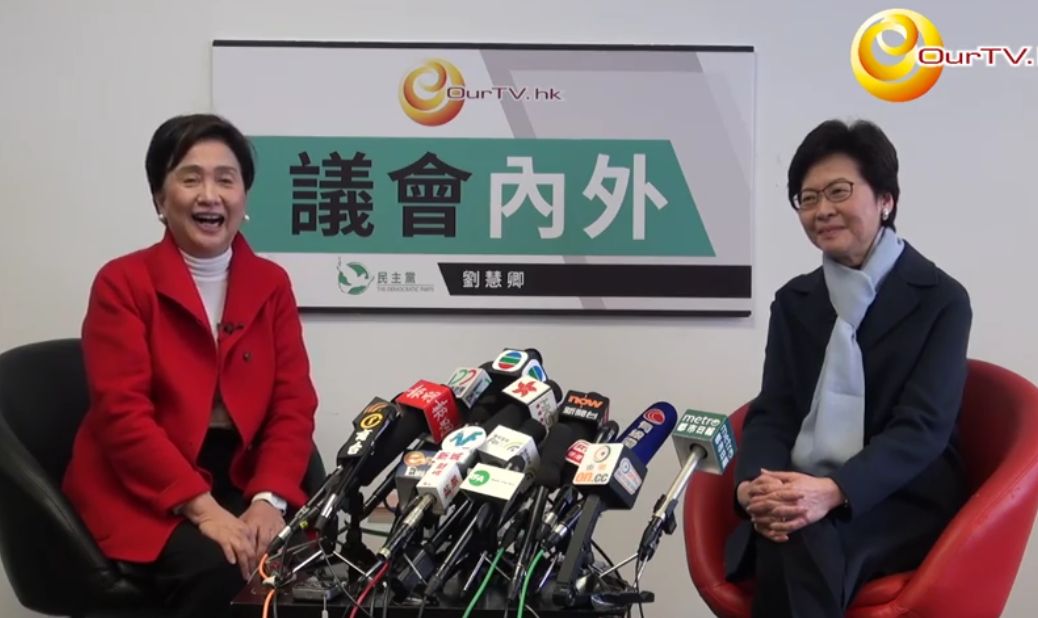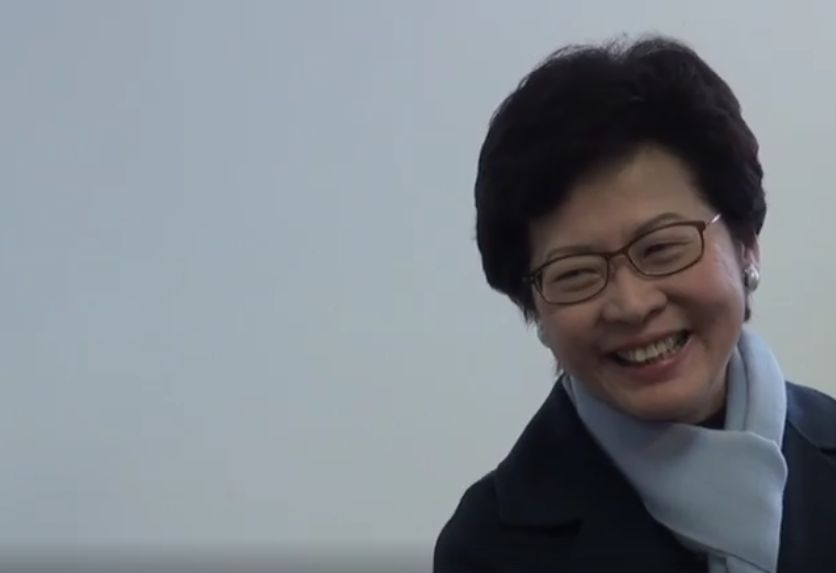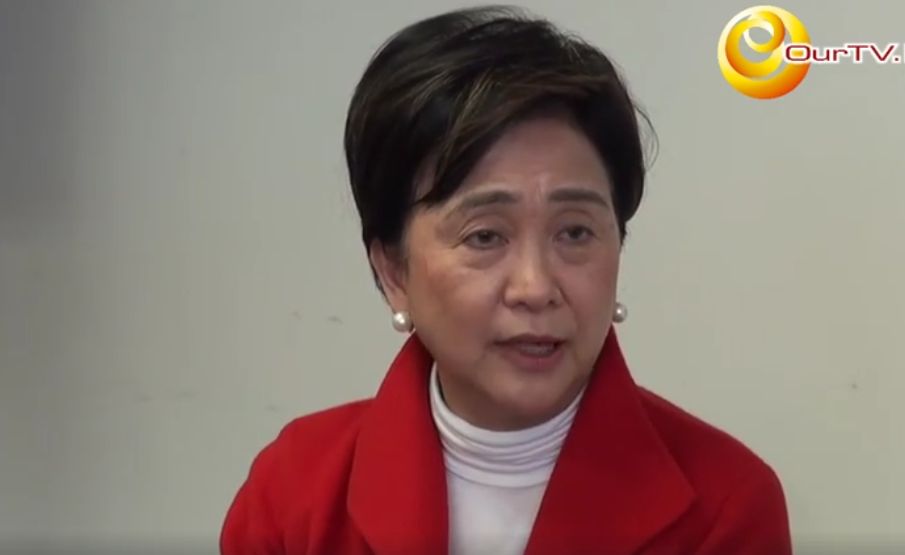Former lawmaker Emily Lau has claimed that her sources told her that, should chief executive candidate Carrie Lam be elected, “there will be an exodus of administrative officers.”
Administrative officers (AO) are the highest-ranked civil servants in Hong Kong – each goes through a long training process to prepare them to become top officials.

Lam herself rose up from the same grade of officers. Her last AO role was as the permanent secretary of the Home Affairs Bureau, before she switched to become a politically appointed official. AOs usually have very stable careers which can last for decades, like Lam’s.
Lau invited Lam to be on her online talk show on Thursday and said a retired veteran AO told her that at least three permanent secretaries will leave the government should Lam be elected.
Lam, in response, said: “Recently the political environment has become very complicated, top-level colleagues face a lot of pressure… two AO colleagues I was very familiar with chose early retirement before turning 60.”
Lam said she organised “happy farewells” for them at her residence in 2015.
She said she did not hear about anyone planning to leave because of her: “I heard many colleagues hoped I could become chief executive to implement [my manifesto].”
Lau said her sources told her Lam would not listen to opinion and thus civil servants were “frustrated and worried.”
But Lam said everyone has good and bad qualities, therefore there must be someone who did not like her.
“Just like many people do not you like you, as they have opinion on Emily Lau,” Lam said.

Factual statements
At Tuesday’s televised debate, she said she did not hire a political assistant during her time in government in order to save money. But it was found that she did indeed employ a former journalist as a political assistant in October 2012, before the assistant quit the following September citing family reasons.
“At the time, what I wanted to say was that – in these past three years – I did not have a political assistant, so I saved public money,” she said.
Lam said the public expected her every single sentence to be very accurate.
“The requirement is a bit too high,” she said.
Emily Lau disagreed: “There is nothing surprising that the media or society have high requirements for top officials… you can’t give vague statements.”

Private media sessions
Lam was previously grilled by veteran journalists over her claim that she “seldom” held off-the-record press briefings.
On Lau’s programme, Lam claimed that she was hosting “tutorial” sessions for media when she was the development secretary.
“It was out of good intention, because the Development Bureau sent many documents to the Legislative Council – they were long and thick, lots of diagrams and numbers – some media told us they were too much too difficult,” she said, adding that she asked colleagues to explain the documents to media representatives.
She said she could not remember if she attended any.
In May last year, when she visited Sichuan with top media managers, she reportedly talked about her political ideals in a private session with them.
Lam denied it was an off-the-record press briefing, saying it was simply “drinks with each other after dinner.”
“I see media as my friends,” she said.

Resign pledge
Lam also said at the debate that “if the mainstream opinion of Hong Kong people renders me unsuitable to serve as chief executive, I will resign.” She clarified the statement on Wednesday.
She told Lau that the situation was tense as she needed to speak fast, against the clock: “I was so nervous every second, so I didn’t have time to explain in detail.”
Lau asked under what circumstances she would resign, but Lam said she wanted to talk about her election manifesto.
Lau asked again if she would resign if the public demanded genuine universal suffrage but Beijing disallowed it. Lam said that the chief executive has to implement the Basic Law.
With regards to her low popularity, Lam said: “People don’t necessarily need to choose a chief executive with high popularity ratings.”
Lam also said online comments against her began on the first day she announced her run.
“I need to comfort netizens, but I also have to care about other non-netizens,” she said, adding that she has been in touch with elderly people and minorities.
John Tsang and Woo Kwok-hing are also running in the small-circle elections due to take place on March 26.
